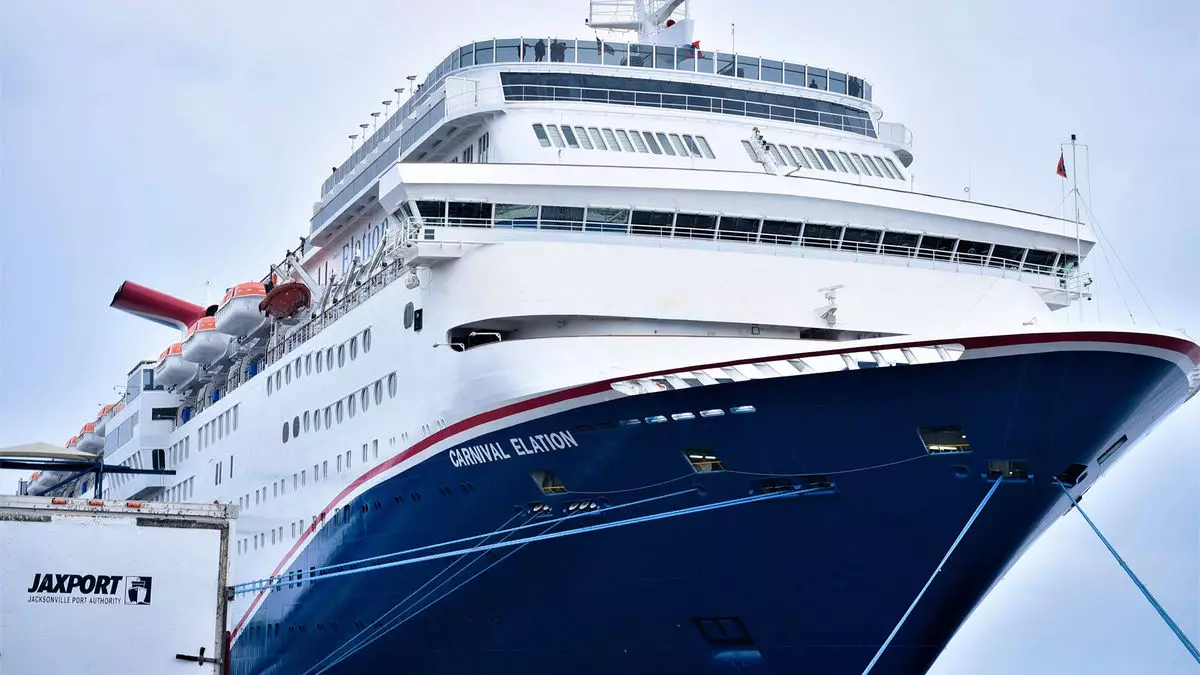The cruise industry in Florida has faced significant disruptions owing to Hurricane Milton’s recent passage. As the storm wreaked havoc across the state, major ports were compelled to suspend operations, leaving numerous cruise ships adrift at sea. These delays not only affected the schedules of thousands of eager passengers but also illustrated the vulnerability of maritime operations to natural disasters. Analyzing the responses of various ports and cruise lines reveals both the immediate challenges and the longer-term implications of such unforeseen events.
The closure of Port Tampa Bay on October 10 marked the beginning of a cascade of disruptions within Florida’s cruise sector. Port officials have been candid in communicating the current status, indicating that while preliminary assessments indicate limited damage to docks, the facilities remain devoid of power. Significant structural issues have been observed, prompting collaboration with federal organizations such as the U.S. Army Corps of Engineers and the U.S. Coast Guard. This partnership is crucial in assessing safety protocols and determining when port operations can safely resume.
The situation wasn’t confined to Tampa; Port Canaveral and Miami also grappled with similar issues as the storm’s aftermath continued to unfold. These ports serve as critical gateways for cruise operations, and their closures directly impact the itineraries of numerous cruise lines.
For passengers aboard ships like the Carnival Paradise, the wait for a safe return to port has transformed their short vacations into uncertain experiences. Originally scheduled for a four-day voyage that left Tampa on October 6, the ship now awaits clearance to dock, effectively turning a leisure trip into an exercise in patience. Carnival has had to cancel planned departures, impacting many who had anticipated a cruise experience. The ramifications of this disruption extend to other ships, with Royal Caribbean’s fleet in Tampa facing similar uncertainties.
With multiple cruise vessels returning on similar dates—such as the Enchantment of the Seas and Grandeur of the Seas set for arrival on October 12—logistic challenges mount. These delays can create a ripple effect in scheduling, preventing seamless transitions from the end of one voyage to the start of another.
The cruise lines have been quick to adapt in light of the situation. The adjustments made by Carnival and Royal Caribbean showcase a commitment to passenger safety while striving to maintain operational efficiency. Some ships are extending their voyages, while others are revising itineraries to accommodate the new docking schedules. For instance, the Adventure of the Seas, originally intended to stop at Curacao, will now skip this port in favor of a sea day, showcasing flexibility in the face of adversity.
It’s important to note that the effects of Hurricane Milton are not solely operational; they also have economic implications. The financial repercussions for cruise lines can be profound, particularly for vessels that are unable to fulfill their schedules. Lost revenue from canceled cruises, potential compensations for inconvenienced passengers, and the costs associated with repairing and resuming normal operations can pose significant challenges for these companies.
The disruptions caused by hurricanes emphasize a pressing need for the cruise industry to enhance its resilience to climate-related challenges. The current storm incident serves as a wake-up call for an industry that has historically underestimated the impact of extreme weather on its operations. The integration of more robust contingency planning, risk management strategies, and investment in improving port infrastructure could fortify the cruise sector against future storms.
Additionally, stakeholders in the tourism and maritime sectors must engage more dynamically in discussions about building more versatile systems that can efficiently respond to sudden natural disasters. Enhanced communication and coordination among cruise lines, port authorities, and governmental agencies stand as essential pillars in navigating the changing landscape of maritime travel, especially in regions vulnerable to hurricanes.
Hurricane Milton’s impact revealed both the fragility of Florida’s cruise operations and the systematic adjustments required to mitigate damage from natural phenomena. As ports such as Tampa, Canaveral, and Miami work towards recovery, the necessity for robust planning and adaptation strategies in the face of increasing climatic volatility has never been clearer. The experience of Hurricane Milton could serve as a pivotal moment, prompting a reevaluation of how the cruise industry prepares for and responds to disruptions, ensuring that sailings remain a cornerstone of Florida’s tourism economy despite the inevitable challenges presented by nature.

